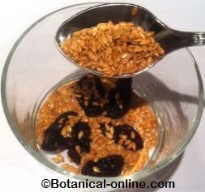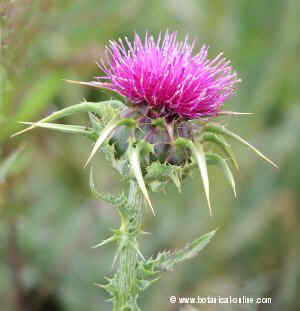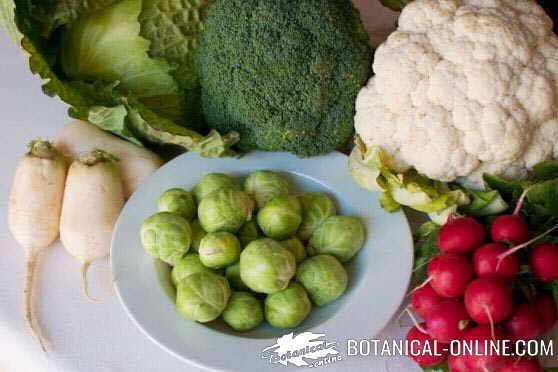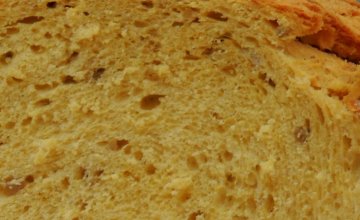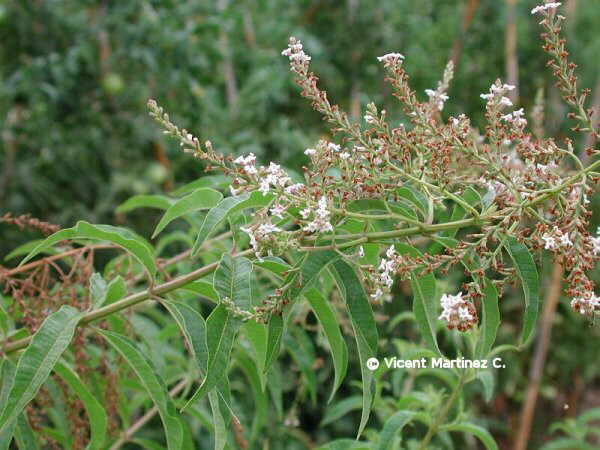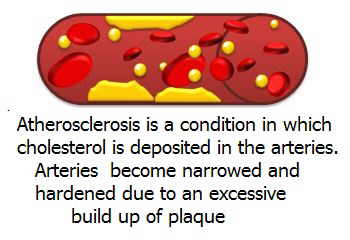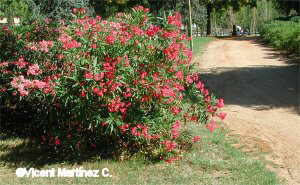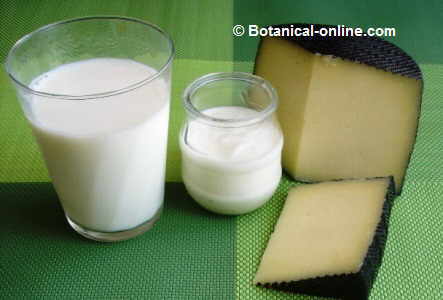Contents
- 1 What benefits do dehydrated plums bring us?
- 1.1 What are prunes and how are they obtained?
- 1.2 How do you get prunes?
- 1.3 Properties of prunes and their nutritional value
- 1.4 Fats in prunes
- 1.5 Prunes provide a lot of energy
- 1.6 Who are prunes recommended to?
- 1.7 Calories in prunes
- 1.8 Are prunes fattening?
- 1.9 Prunes, the solution to constipation
- 1.10 Adverse effects of prunes
- 1.11 The best antioxidant fruit in the world
- 1.12 Plums as a diuretic
- 1.13 Plums for the cardiovascular system
- 1.14 Plums and their bactericidal properties
What benefits do dehydrated plums bring us?
What are prunes and how are they obtained?
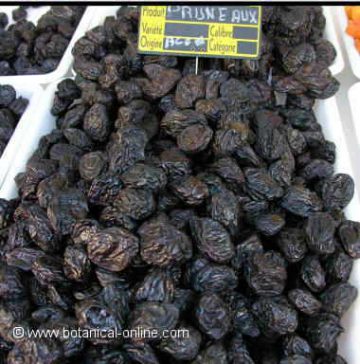
Prunes are fresh plums that have undergone a drying or dehydration process. These plums can be obtained from natural drying through the action of the sun. This process is the most used traditional procedure to preserve fruits.
How do you get prunes?
Modernly, the latest drying techniques are carried out by applying heat in artificial ovens, which has accelerated the drying process and separated it from dependence on climatic factors.
All varieties of plums can undergo the dehydration process but there are some types of plums that are much more recommended than others. The most interesting currently is known as Petite d’Agen, a French plum that forms the basis of production for the world’s largest exporter of prunes, California.
Properties of prunes and their nutritional value
With respect to plums, prunes present essentially the same properties, although they are increased due to the fact that the drying process involves a decrease in water and a higher concentration of most of their components.
We should not forget that prunes lose up to more than three times their weight when dehydrating them and converting them into prunes, which makes the resulting product very rich in sugars and fiber.
Fats in prunes
Like plums, prunes have very little fat and their caloric power is determined by carbohydrates, which provide much more usable energy since it remains in the body for longer.
In this case, prunes contain almost five times more carbohydrates than plums, which is why they constitute real energy reserves with little volume.
Prunes provide a lot of energy
A couple of good plums for snack or between meals can be very useful for schoolchildren, workers and people who have to do great physical or intellectual work.
Who are prunes recommended to?
They are recommended especially for athletes and sportsmen, who can obtain a lot of energy with little weight, ideal to carry during trips or to make a high carbohydrate intake.
Prunes are an excellent food against fatigue. They are also suitable for people who want to gain weight healthily.
Calories in prunes
The caloric power of prunes is much higher than that of fresh fruit, since when they are dehydrated, the weight decreases and the concentration of immediate principles of plums increases (mainly, their sugar content increases).
100 g of prunes (6-7 units) contain 239 calories (kcal), while the same amount of plums (1 unit) provides 55 calories.
A couple of plums contain 60 calories, the equivalent of 1 apple or 2 walnuts.
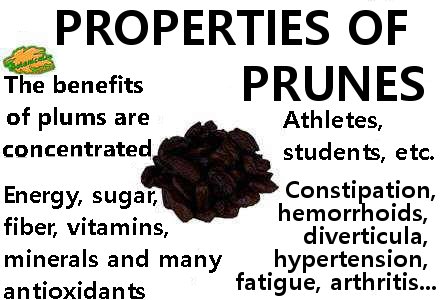
Are prunes fattening?
Regarding whether plums are fattening, no food by itself makes you fat or lose weight, but the general diet must be taken into account and the exercise carried out throughout the day must also be seen. Likewise, plums do not have as high a calorie content as nuts because of they do not contain fat.
Of course, chocolate bars or industrial sweets contain many more calories and fat, being a breakfast or snack option totally discouraged.
Prunes, the solution to constipation
Prunes are five times richer in fiber than plums, which makes them particularly interesting in the diet for constipation and to prevent hemorrhoids.
A famous remedy for constipation with plums consists of eating two or three dried plums for breakfast, which have previously been soaked with water throughout the night.
In the morning you eat the plums soaked overnight, chewing them well, and you also drink the water of this preparation.
Of particular interest is the prune juice which, due to its high content of sorbitol and hydroxyphenylisatin, constitutes an authentic natural remedy to cure constipation.
For people with intestinal retention problems or diverticulitis, it is very helpful to eat well-chewed dried plums or drink their juice. In all these indications it is necessary to drink plenty of water or liquid. The water allows the plum fiber to act properly.
Adverse effects of prunes
- Many prunes can cause flatulence, given the high fiber content of these fruits.
- To avoid problems of intestinal gas, heaviness or intestinal cramps in people not used to eating dried plums, it is very convenient to start by taking small amounts and gradually increase them until the body gets used to it. This usually happens, more or less, after about 20 or 25 days of habituation.
- If they are taken in too much, they would cause overweight problems.
The best antioxidant fruit in the world
A prune contains more than 20 compounds with antioxidant properties and constitutes the fruit with a greater antioxidant power because of its ability to neutralize free radicals.
What is known as “oxidative stress” occurs when there are more free radicals in the body than antioxidants, which leads to a deterioration of the cells. A diet rich in antioxidants will help prevent this imbalance and its consequences (premature aging, poor skin appearance, etc.).
This fruit would be followed in order of importance in the “top 10 antioxidant fruits” by raisins, blueberries, blackberries, strawberries, plums, oranges, black grapes, cherries, kiwis and grapefruits.
As we can see, the antioxidant power of prunes is greater than that of plums, which occupy the sixth position after strawberries.
Plums as a diuretic
The large amount of potassium in prunes (twice that of fresh ones) helps to eliminate body fluids and thus avoids the problem of fluid retention.
The accumulation of fluids is something very common in certain situations such as the passage of age, menopause, kidney failure problems or liver diseases. Eating this food could partially alleviate the consequences of these abnormalities.
It can also be beneficial when it is required to eliminate toxins, in cleansing diets and in the arthritis diet.
However, plum cannot be considered a suitable fruit in cases of obesity and diabetes. Its high sugar content makes it contraindicated in these cases, in which insulin resistance or intolerance to foods very rich in sugar may appear. In these cases, you could only take plums in small portions (1-2 units) and in combination with foods rich in fiber, that is, in vegetable dishes or salad.
Plums for the cardiovascular system
Prunes, in addition to containing sugar, a lot of fiber and practically no fat, provide minerals such as magnesium, which improves muscle recovery (including that of the heart muscle), and is considered a “natural relaxant”.
Because of these properties, that is, its richness in antioxidants and its high content of potassium and magnesium, plum is very interesting for the treatment of hypertension, poor circulation, heart disease, fibromyalgia, stress, fatigue, etc.
Plums and their bactericidal properties
Recent experiments seem to suggest the importance of this dehydrated fruit in inhibiting the bacteria growth in reheated roast meat. It has been found that when saving roast meat for another meal, many bacteria usually grow.
Cooking the meat with prunes prevented or slowed the development of these bacteria. In the same way, it was seen how the addition of this fruit in the precooked food neutralized the toxins that are produced by the decomposition of unsaturated fatty acids, mainly in pork and chicken meat, increase its flavor and soften its texture.
| Nutrients | Prunes per 100g | Plums per 100g |
| Water | 32,3 g | 85,2 g |
| Calories | 239 kcal | 55 kcal |
| Fat | 0,52 g | 0,69 g |
| Protein | 2,6 g | 0,72 g |
| Carbohydrates | 62,7 g | 13,01 g |
| Fiber | 7,1 g | 1,5 g |
| Potassium | 745 mg | 172 mg |
| Phosphorus | 79 mg | 10 mg |
| Iron | 2,4 mg | 0, 10 mg |
| Sodium | 4 mg | 0 mg |
| Magnesium | 45 mg | 7 mg |
| Calcium | 51 mg | 4 mg |
| Cupper | 0, 43 mg | 0, 043 mg |
| Zinc | 0, 53 mg | 0,10 mg |
| Selenium | 2,3 mcg | 0, 5 mcg |
| Vitamin C | 3,3 mg | 9, 5 mg |
| Vitamin A | 1987 UI | 323 UI |
| Vitamin B1 (Thiamin) | 0,081 mg | 0,043 mg |
| Vitamin B2 (Riboflavin) | 0,162 mg | 0,096 mg |
| Niacin | 1, 961 mg | 0, 5 mg |
| Vitamin E | 1, 45 mg | 0, 6 mg |
![]() More information on plums and prunes
More information on plums and prunes

